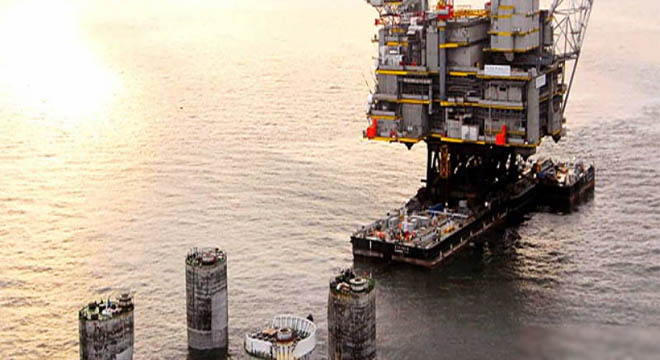ISLAMABAD-Cognizant of the country’s existing and future energy needs, the Petroleum Division (PD), during the year 2020, has aligned its strategy to streamline the matters related to the oil and gas sector. It introduced the ease-of-doing-business plan and took radical measures to ensure a level-playing field for all competitors in the energy sector.
For the purpose, as many as 10 unnecessary steps, out of 24, were abolished to encourage investment in the petroleum sector. Recounting the government achievements in the oil and gas sector, a senior official privy to the petroleum sector developments told APP that the PD started importing Euro-5 standard petrol and diesel for the first time in the country’s history. Accordingly in June-2020, Minister for Energy Omar Ayub Khan inaugurated a Euro-IV and V standard fuel testing laboratory in Islamabad at the Hydrocarbon Development Institute of Pakistan (HDIP), a body responsible to ensure the provision of quality petroleum products across the country. The facility was set up in line with Prime Minister Imran Khan’s directives to ensure availability of high-grade fuels conforming the latest vehicles and tackle environmental issues like smog and air pollution. During the one year, the official said the government also implemented a ‘Platts based’ formula, under which it started determining the prices of petroleum products fortnightly instead of a monthly basis. Besides, the PD drafted a new Liquefied Petroleum Gas (LPG) policy, which was now in the final phase of completion. The PD, he said, had also completed dualization of the White Oil Pipeline, from Karachi to Sheikhupura, for smooth supply of petrol and diesel to Oil Marketing Companies (OMCs) and reducing reliance on the traditional mode of transportation through tankers. “Currently, the pipeline is in the testing phase and will be operational soon.”
He said the pipeline would be expanded to Peshawar for which a contract had been awarded to the Frontier Works Organization, which had completed its necessary work. Hopefully, the practical work on the expansion project would start in the next few months and complete in 18-24 months, he added. With the completion of the project, known as Machike-Tarujabba oil pipeline, the official said all imported diesel and fuel besides local production in the south of the country, would move through the pipeline from Karachi to Peshawar instead of oil lorries. However, he said, onward distribution from OMCs’ oil depots to petrol pumps would remain intact through tankers. “It will greatly help reduce traffic congestion, environmental pollution and transportation cost.”
Under the project, a 427-kilometre pipeline from Sheikhupura to Peshawar would be laid aimed at ensuring a smooth supply chain of petroleum products from Karachi to Peshawar. The pipeline had been conceived after frequent incidents of oil tankers’ overturn, especially Ahmedpur Sharqiya tragedy in 2017, to ensure safe, efficient and reliable mode of supplying petroleum products across the country. The project consists of three sections, including Machike-Chak Pirana (135-km), Chak Pirana-Rawat (117-km) and Rawat-Tarujabba (175-km), which would be capable of transporting dual oil products like High-Speed Diesel and Motor Spirit Oil to different depots. The official said the government also started the process of upgrading existing oil refineries and establishing new facilities to achieve self-sufficiency in the crude oil refining sector to bring down the country’s oil import bill. Commenting on the gas sector, he said significant progress had been made on Turkmenistan-Afghanistan-Pakistan-India (TAPI) and North-South gas pipeline projects, adding physical work on the North-South gas pipeline would start in 2021. He said the PD also finalized a plan to establish Strategic Underground Gas Storages (SUGS) and hopefully its feasibility study would complete by May and construction to start in August 2021. The official said the government also expedited the pace of awarding new exploration blocks after seeing constant depletion in the existing reservoirs and non-discovery of any major deposit since long.
In a first, he said, the PD developed an advanced and innovative dashboard application for effective assessment of real-time E&P data information and taking timely remedial measures, in case of any decrease or delay in oil and gas production. Besides, the system was devised to maintain daily sales data of oil marketing companies and petrol pumps to avoid hoarding or any shortage, he added. During the year 2020, he said, the government reconstituted boards of directors of 10 companies, working under the Petroleum Division, besides appointing professional chief executives and managing directors in Pakistan State Oil, Oil and Gas Development Company Limited, Pakistan Mineral Development Corporation, Pak-Arab Refinery Company, Sui Southern Gas Company and Sui Northern Gas Pipelines Limited, to improve their efficiency.
The Petroleum Division also held several activities and seminars to discuss ways and means to exploit the country’s full potential in oil and gas and achieve autarky in the energy sector.
Follow the PNI Facebook page for the latest news and updates.









